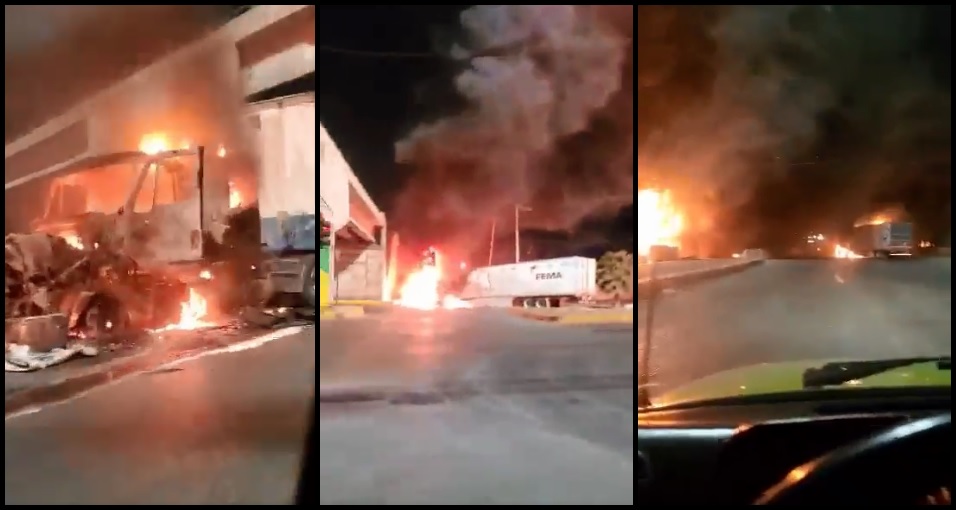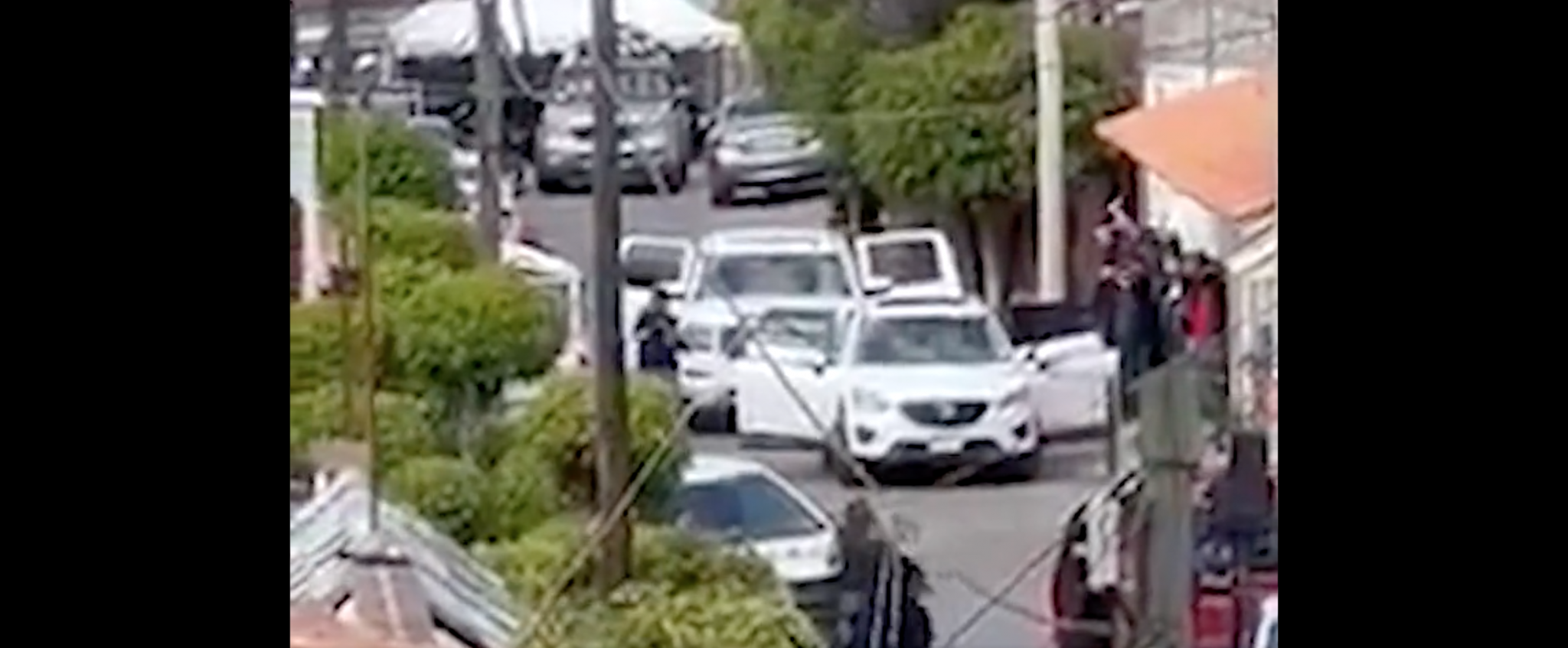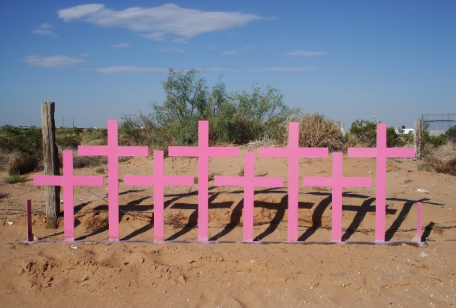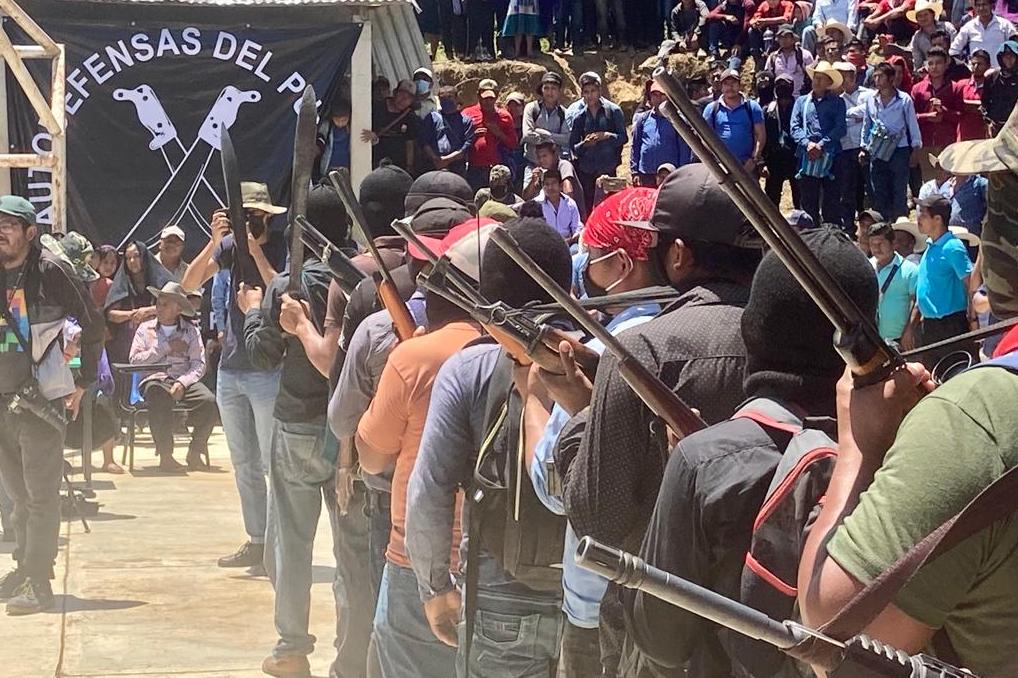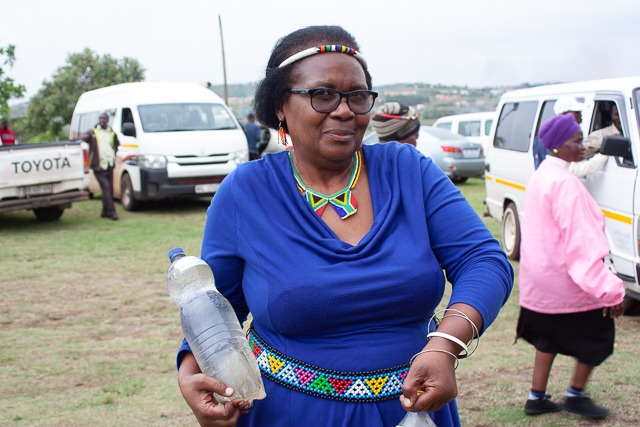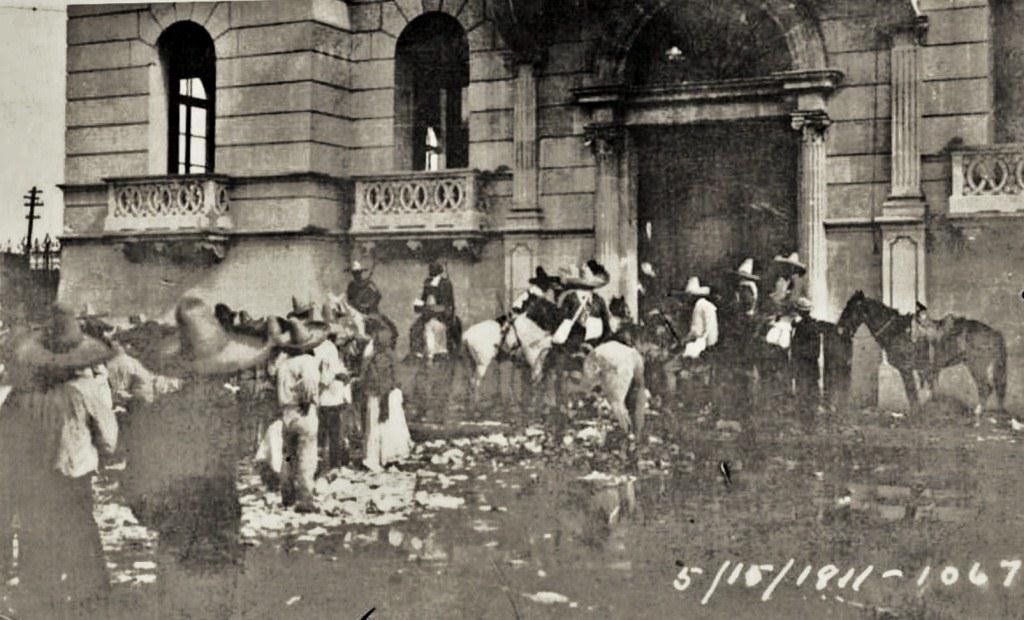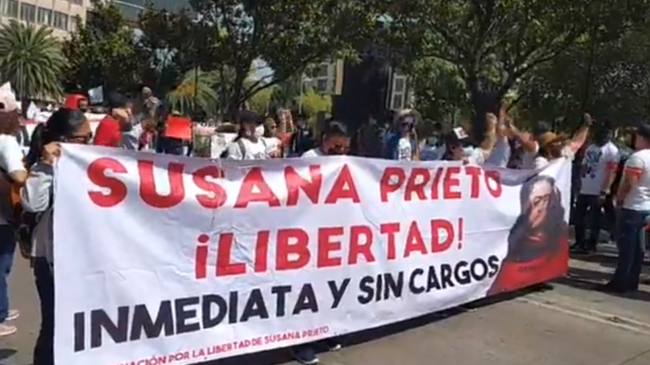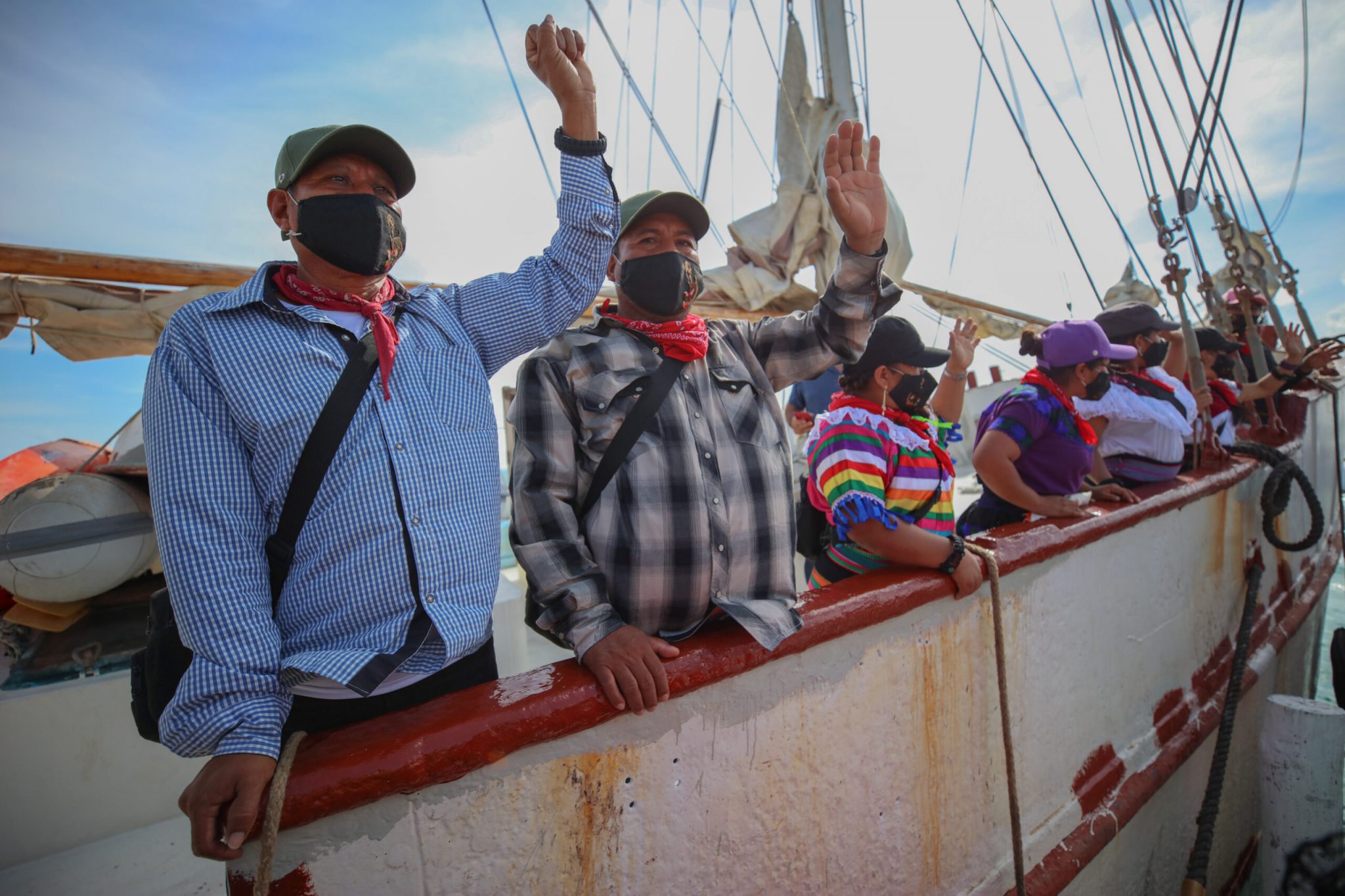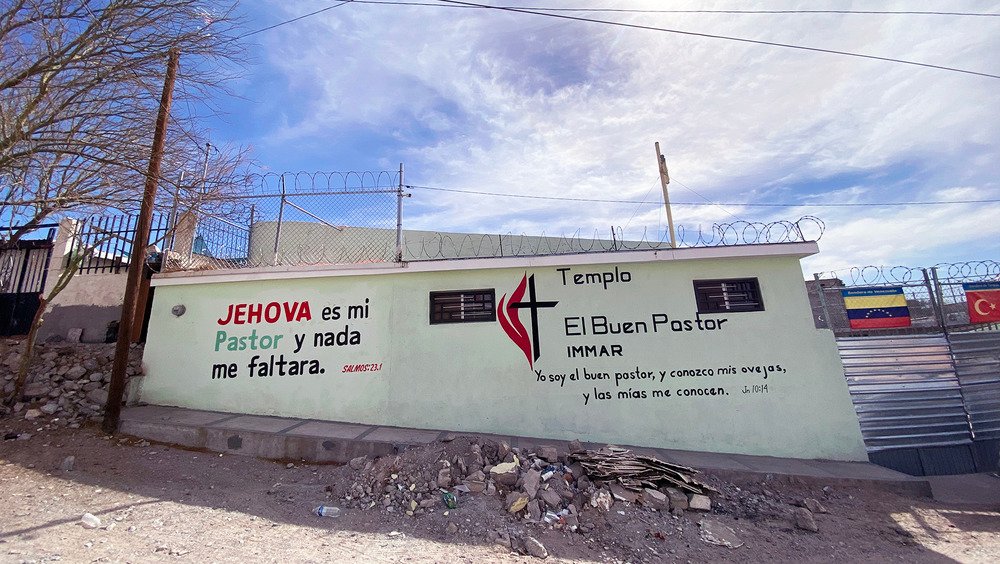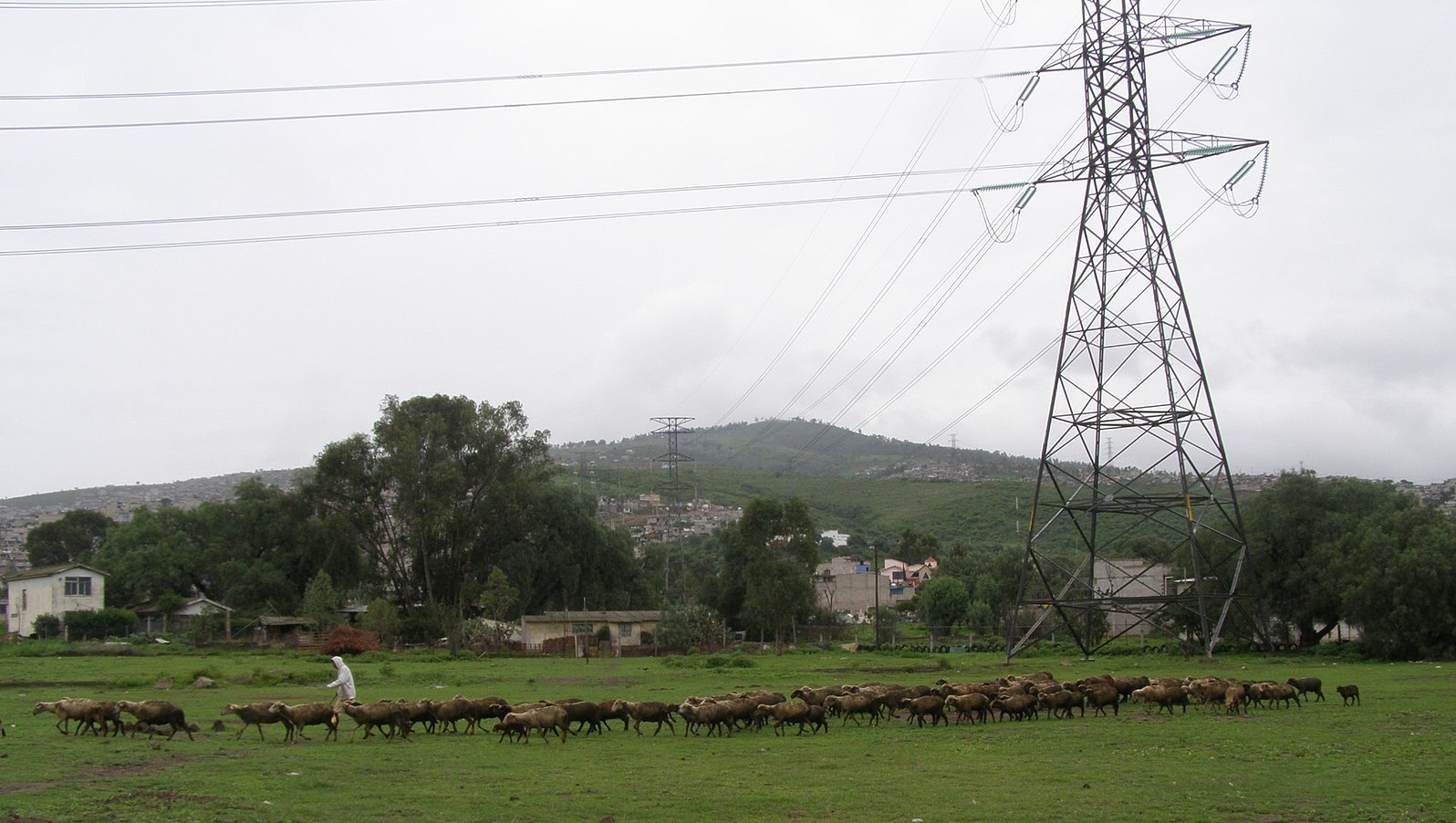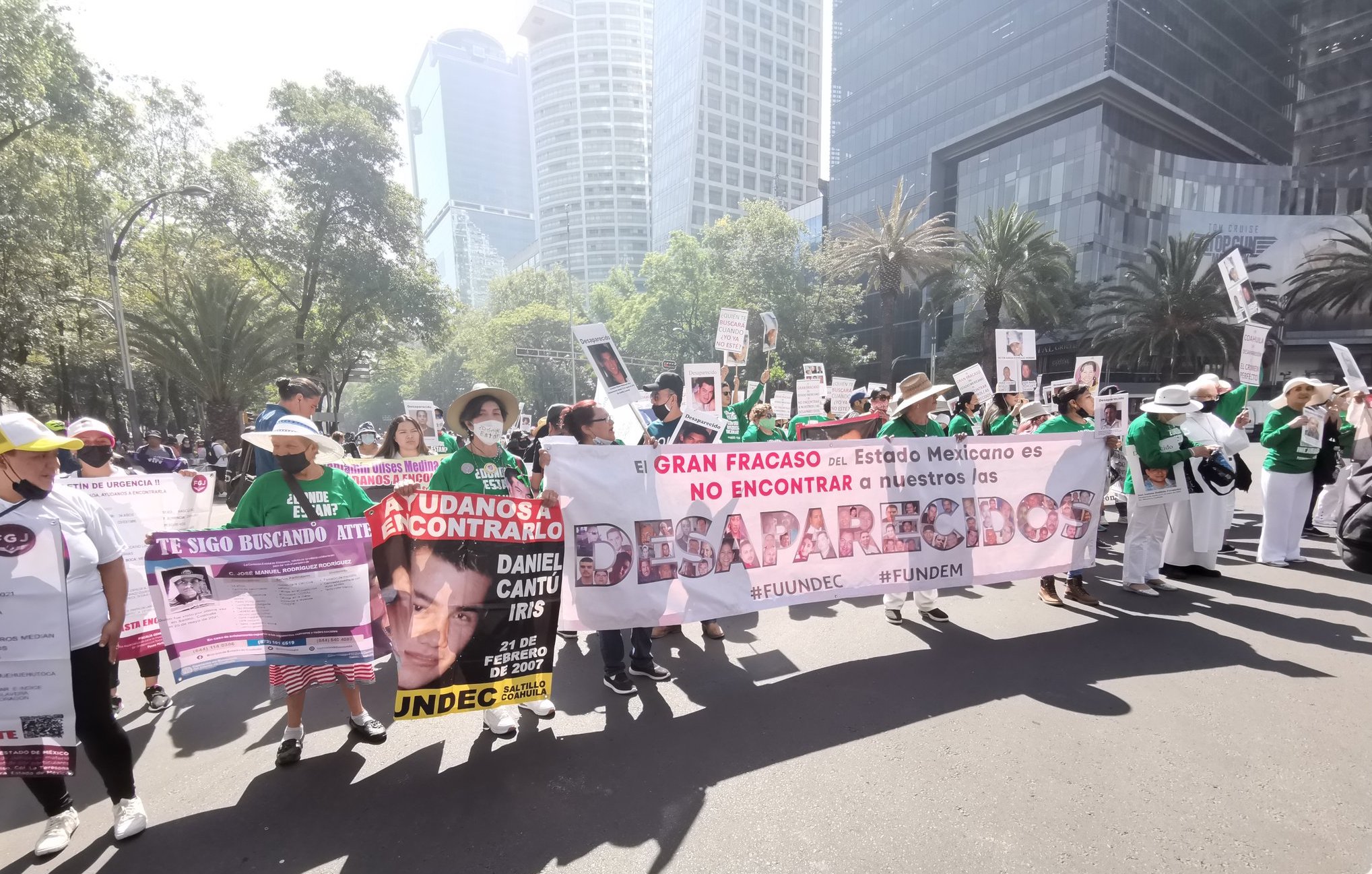
Mothers of the disappeared march in Mexico
On Mexico’s Day of the Mother, thousands of mothers and other family members of the disappeared held a March for National Dignity in the capital, calling for action on their missing loved ones. The march, which filled the main avenues of Mexico City, was organized by a coalition of 60 regional collectives of survivors of the disappeared from around the country. In the days before the march, a group camped out at the National Palace, demanding a dialogue with President Andrés Manuel López Obrador. (Photo via Twitter)



